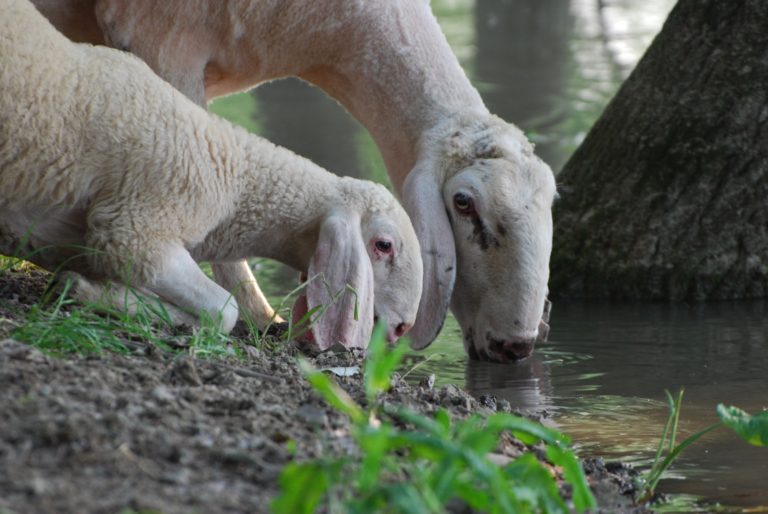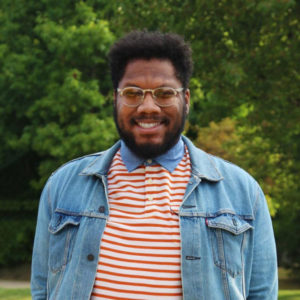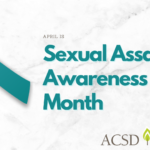John 13 recounts the moment Jesus washes the feet of His disciples. This humble act is reenacted in churches, Bible studies, and on Christian college campuses worldwide. Often, that scene is interpreted as Christ “serving a need,” but the emotional roller-coaster that the disciples often experienced is frequently ignored. Jesus served a need beyond dirty feet. Jesus took time to allow his disciples to heal and rest during their trauma.
If you are reading this in 2021, you have already heard “these are unprecedented times” more times than you can count. The COVID-19 (Coronavirus) pandemic marks a major turn in world history. Institutions have been forced to make cuts, implement new accommodations for students, create budget adjustments, and some have even been forced to close. While adapting and creating the best experience for students, many of our students are experiencing trauma that go unaddressed.
It is essential to recognize that our students may seek our institutions as a safe space. It is also crucial amid the COVID pandemic, as we engage with our responsibilities to recognize a population of students that identify our institutions with a sense of security. The months students were sent home due to the pandemic put many back into spaces that were not deemed safe or secure—spaces that awaken past trauma.
2020 also brought to light many challenges deemed trauma for our international students and our American Minority students, whether it be on campus or at home. There is a running notion that protests in the Summer of 2020 started with outrage in response to the deaths of George Floyd and Breonna Taylor. Many of the issues that have spoken out against are systemically broader, including education reform, women’s rights, negative rhetoric/imagery towards Native Americans, threats to ban international students amid the pandemic, mistreatment of members of the Latinx/Hispanic communities amid changes in immigration laws, as well as police brutality against people of color. These populations include students at our universities- students who are currently walking in their trauma and maybe using our institutions as a safe space. Many of these students are currently experiencing the most traumatic times of their lives, students may live in spaces where people and policies overlook their well-being.
Bessel van der Kolk is a prominent psychologist known for his work with Post Traumatic Stress Disorder (PTSD). He defines trauma as
trauma is specifically an event that overwhelms the central nervous system, altering the way we process and recall memories. Trauma is not the story of something that happened back then. It is the current imprint of that pain, horror, and fear living inside people (2014)
In van der Kolk’s book, The Body Keeps the Score; he outlines that trauma leaves physical markers that impact how people respond to situations. He notes that people are forced to respond to situations post-trauma based on their life experiences.
We generally look at trauma in the past tense, not in a way that accounts for people who are currently working through trauma. We work to help students heal once their trauma is done but elect not to participate in trauma as they experience trauma.
As mentioned above, for many students this trauma is caused by their home-life, peers, or dwelling in unsafe spaces. If we seek to provide a safe space for our students as many of our website advertise, we must ask ourselves, how are we assuring students’ needs experiencing trauma are addressed?
John 13 provides a look at Jesus taking care of his disciples. At this moment, stones were not thrown, hate was not spewed their way, they were not traveling with crowds, and the theological rigor did not challenge them. For seventeen connecting versus, it was Jesus caring for those whom he was responsible for, during their traumatic experience, providing a safe space. As institutions in Christian Higher Education, how are we doing the same?
Ways that institutions can posture themselves like Christ is through:
- Assessing policies that potentially oppress the voice and experience of students.
- Publicly denouncing stereotypes and ideals that demean the identity of students.
- Assessing representation of staff, faculty, and front-facing student leadership positions.
- Providing an effective student dialogue strategy that allows for potential policy change.
- Develop non-partisan trainings that teach faculty and staff members on engaging student issues.
As we prepare to engage with our students, the COVID-19 pandemic has forced the hands of many higher education institutions and confront many of the policies that allow students to be safe. As we examine how “safe” our institutions are, it is essential that we also address our students’ wellbeing and how we contribute to student trauma. The political climate alone and how our institutions respond to our students contributes to student trauma. Allowing our institutions to be safe spaces requires institutions to understand what safe means to all our student groups and go beyond our inflated statistics about the lack of crime and our low cases of students infected with COVID. We must allow our student populations to define safety as we expand our definition to include social issues, and trauma that potentially haunt our student on and off-campus.







